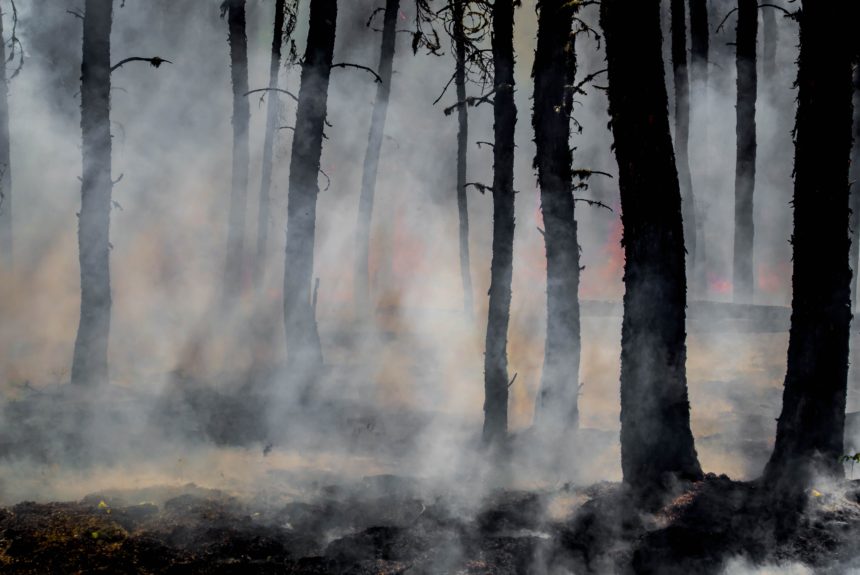The Biden administration recently came out in opposition to a bipartisan forest management bill that passed the House of Representatives meant to address our growing wildfire challenge. A challenge the current administration has previously referred to as a crisis.
The Fix Our Forests Act, led by House Natural Resources Committee Chairman Bruce Westerman (R-AR) and Representative Scott Peters (D-CA), would speed up the approval process for forest management projects, encourage collaboration across all levels of government, and prioritize treatments for forests at the highest risk for wildfire. Better management would reduce the economic and environmental costs of wildfires that wreak havoc on our communities.
Fifty-five Democrats voted in support of the bill. Finding common ground in Congress has become a rare occurrence, but when legislators do find an area of agreement, it’s typically celebrated. Yet, President Biden and several of environmental organizations would like to see the policy fail.
Specifically, the Biden Administration and a coalition of environmental nonprofits stand firm against the bill, citing concerns about weakening environmental protections to enact forest management projects. Removing barriers that delay active forest management does not weaken our ability to protect our environment; in fact, doing so would bolster environmental protection.
Wildfires are increasing in size and severity largely due to decades of poor forest management and wildfire suppression policies. The inability to effectively manage America’s forests, particularly in the face of climate change, has resulted in denser forests and increased the number of megafires, or fires burning more than 100,000 acres, in the past two decades. Dense forest areas increase the likelihood of disease spread, invasive species, and create a tinderbox waiting to be ignited allowing fire to spread quickly and catastrophically. Before the 1970s, no megafires had ever been documented. Such intense wildfires destroy homes and businesses, damage critical habitats, impact the long-term health of forests, and increase air pollution and greenhouse gas emissions.
In 2020, greenhouse gas emissions from wildfires in California erased nearly 20 years of emissions reductions the state had achieved. Similarly, a recent NASA study found that Canada’s 2023 wildfire season released more carbon dioxide than Russia or Japan emitted from fossil fuels in all of 2022. Our forests should be serving as carbon sinks, not carbon sources.
Americans do not have to accept this as the norm. Active forest management practices, like prescribed fires and mechanical thinning, have been proven to reduce the risk of wildfires and increase the health and resilience of forests. If we hope to protect our beloved forests and continue mitigating climate change, these practices must be widely adopted.
Unfortunately, the biggest barrier to implementing better forest management is government red tape. Currently, the Forest Service has a backlog of 80 million acres of forest that needs to be treated but has recently only been able to treat a few million acres per year. At this rate, it will take decades to complete all the treatments needed to restore the health of our national forests because just breaking ground on these projects on federal lands can take three to seven years.
For instance, in 2001, the U.S. Forest Service wanted to carry out a forest management project to mitigate wildfire risk. To implement the project, the agency had to comply with the National Environmental Policy Act. Before the agency even finished the environmental review process, a wildfire burned through half the project area. This isn’t an anomaly; red tape and frivolous lawsuits often get in the way of wildfire management projects.
Despite the pushback from the Biden administration, Democrats have in the past supported efforts to bolster active forest management by limiting the red tape standing in the way. In fact, in June of 2023, California Democrats sent a letter to the EPA urging them to spare prescribed burns from air quality regulations, recognizing the critical importance of this forest management practice. Essentially, these Democrats advocated in favor of allowing for planned fire to avoid catastrophic, unplanned fire.
Forest management should be a bright spot in Congress for common ground on promoting a healthier environment, reducing emissions and reducing the risks of extreme wildfires. Instead of baselessly demonizing good faith, bipartisan efforts, the Biden administration should commend the House for taking steps to restore forest health and mitigate wildfire risk.
Sarah Rosa is the Policy Manager at the American Conservation Coalition Action (ACC Action).
The views and opinions expressed are those of the author’s and do not necessarily reflect the official policy or position of C3.
